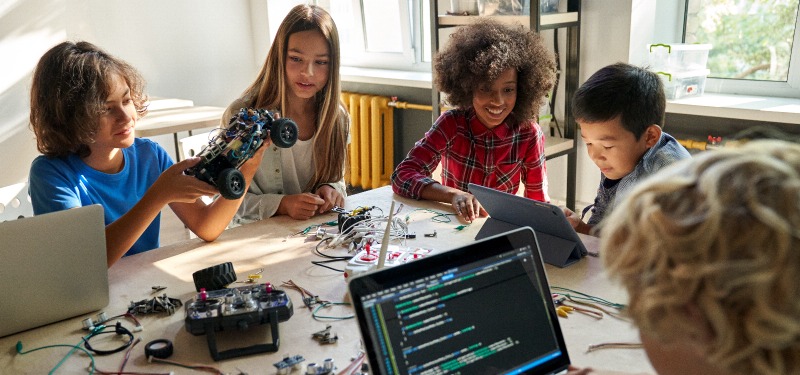In a recent academic exploration, researchers from the Massachusetts Institute of Technology (MIT) have uncovered compelling evidence suggesting that early music education may have a greater impact on cognitive development in children than traditional coding lessons. Contrary to the widespread belief that computer science is the ultimate key to future intelligence and success, this study posits that the structure and discipline of learning music may offer a deeper, more enduring influence on a child’s mental growth.
The findings point to an intriguing reversal in current educational trends, which often place coding at the pinnacle of early STEM development. However, MIT’s research team found that children engaged in consistent musical training demonstrated stronger brain connectivity, enhanced memory, improved focus, and better emotional regulation compared to their peers who spent the same amount of time learning to code.
Music and the Brain: A Deep Neurological Connection
Music activates numerous regions of the brain simultaneously, stimulating both hemispheres and bridging the logical and emotional faculties in ways few other disciplines do. When a child learns an instrument, they are not only learning to read notes or press keys — they are developing pattern recognition, motor coordination, auditory processing, and emotional expression all at once.
According to the MIT study, this complex engagement builds lasting neurological connections that enhance abstract reasoning, linguistic comprehension, and spatial-temporal awareness — all critical components of higher learning and problem-solving.
Conversely, while coding certainly has its merits, particularly in developing analytical and computational thinking, it tends to engage more isolated functions of the brain. Music’s holistic stimulation appears to support a broader and more integrated foundation for intellectual development.
Emotional Intelligence and Focus: The Hidden Strengths of Music
Beyond cognitive development, music education fosters emotional intelligence, discipline, and social skills. Ensemble playing, for example, teaches children how to listen, collaborate, and adjust their performance in real-time. These skills translate directly to improved interpersonal communication and resilience in stressful or collaborative settings.
The study also noted that students engaged in music lessons demonstrated significantly better focus and task persistence. In an age of constant distraction, the ability to concentrate deeply on a complex task — such as mastering a piece of music — becomes an invaluable skill, not just in academics, but in future professional settings.
Why the Shift Toward Music Matters
The emphasis on teaching children to code from a young age has grown substantially in recent years, driven by the demand for tech workers and the promise of lucrative careers in software development. However, MIT’s findings suggest that we may be overlooking the foundational benefits of musical education in our rush toward digital literacy.
The researchers argue that music cultivates qualities that support lifelong learning across all disciplines — including math, reading, and science. It offers a creative outlet, encourages patience, and strengthens neural pathways critical for academic performance.
Moreover, music doesn’t necessarily compete with coding — instead, it may prepare the brain to learn coding more efficiently at a later stage. A child trained in music may have the cognitive agility and discipline needed to absorb complex technical skills more rapidly and with deeper comprehension.
Rethinking Educational Priorities
These findings invite parents, educators, and policymakers to reassess educational priorities for children. Instead of viewing music and coding as competing choices, there may be greater value in viewing them as complementary tools — with music potentially laying the groundwork for future technological fluency.
The study recommends that music education receive equal, if not greater, emphasis in early developmental stages, particularly during the elementary school years when brain plasticity is at its peak. Schools with limited resources for both may want to consider the long-term developmental returns of investing in musical instruction.
A Harmonious Future
As society continues to evolve rapidly in the face of technological advancement, it becomes increasingly important to cultivate well-rounded individuals who can think creatively, regulate their emotions, and collaborate effectively. Music, as this research shows, remains a timeless and powerful ally in achieving those goals.
Rather than racing to teach coding to five-year-olds, MIT suggests we might better serve their futures by first teaching them how to listen, feel, and create through music.
Source: Massachusetts Institute of Technology (MIT)

